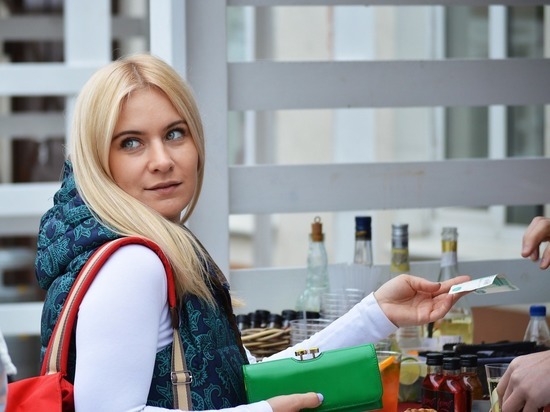Producers are ready to participate in the labeling experiment for non-alcoholic beverages
More than half of buyers (54%) in Russia buy counterfeit goods due to fraud on the part of sellers and almost a fifth of them (19 %) suspect counterfeit, but have to put up with it. This is evidenced by the results of a study by the Laboratory of Economic and Sociological Research of the National Research University Higher School of Economics. Among the most common counterfeit goods, almost 22% are food products. The Ministry of Industry and Trade is aware of the problem. To solve it, the department is conducting a federal experiment on labeling products. How the state and business found mutual understanding in the fight against counterfeiting and whether this will affect the cost of goods — in our material.

In Russia, from May 15, 2023 to February 1, 2024, an experiment on the labeling of soft drinks will be conducted. The project is being implemented by the Ministry of Industry and Trade. It should be the next step after the successful implementation of the labeling of dairy products, mineral water, tobacco, alcohol and other products. The Chestny Znak state product labeling system and companies supplying technical solutions have already declared their readiness to support the project of the Ministry of Industry and Trade. The company has already accumulated experience in combating illegal circulation of goods. Since 2019, it has been successfully labeling dairy products, bottled water, medicines, tobacco, shoes, light industry goods, fur coats, tires, perfumes and cameras. “We do not foresee any difficulties, since all types of non-alcoholic beverage packages are already used in labeled categories, for example, in dairy products, as well as drinking and mineral water,” said Revaz Yusupov, Deputy General Director of the CRPT. “According to our data, more than 62% of non-alcoholic beverage producers are already familiar with labeling, most of them work with Chestny Znak, as they produce other products that are subject to labeling.” The pilot project will be voluntary and will not affect prices in any way. The participants in the experiment will independently determine the list of production lines and types of goods, and the system operator will provide them with marking codes free of charge.
Businesses also reacted enthusiastically to the government's initiative. All surveyed companies agreed to participate in the project of the Ministry of Industry and Trade. “Issues of trust in brands and the fight against fakes remain relevant,” said Ruslan Kokovin, CEO of BAIKALSEA Company. “We are confident that the labeling experiment for these products will be successful and this measure will clear the market of fakes.”
The Ocher Beverage Plant supported the initiative of the Ministry of Industry and Trade and noted the presence of illegal goods on the market. “We see fakes on the market that are made from unknown ingredients, dyes, sweeteners. This is reflected in the image of the entire industry. Therefore, we understand the need to control this market, and we are ready to start the experiment,” Denis Lokhanin, an engineer for the company’s quality management system, emphasized.
We are also open to participate in labeling testing at the Maikopskaya lemonade factory. Some of the products of this company are already produced with marking codes. “We are ready to start an experiment on sweet water in order to test all the processes,” said Alexander Sorokin, General Director of the factory.
The Anticounterfact Association believes that the inclusion of soft drinks in the labeling will complement the already taken measures to combat with illegal circulation in the segment of mineral and packaged water. Providers of technical solutions are ready to provide the participants of the pilot project with the necessary equipment. Whether it will be possible with such an agreement of the participants to protect the Russian market from counterfeit goods will be clear at the end of the year. However, the impressive openness of business to cooperation with the state gives hope that counterfeit as a phenomenon in Russia will be completely eradicated, at least in the beverage segment.

